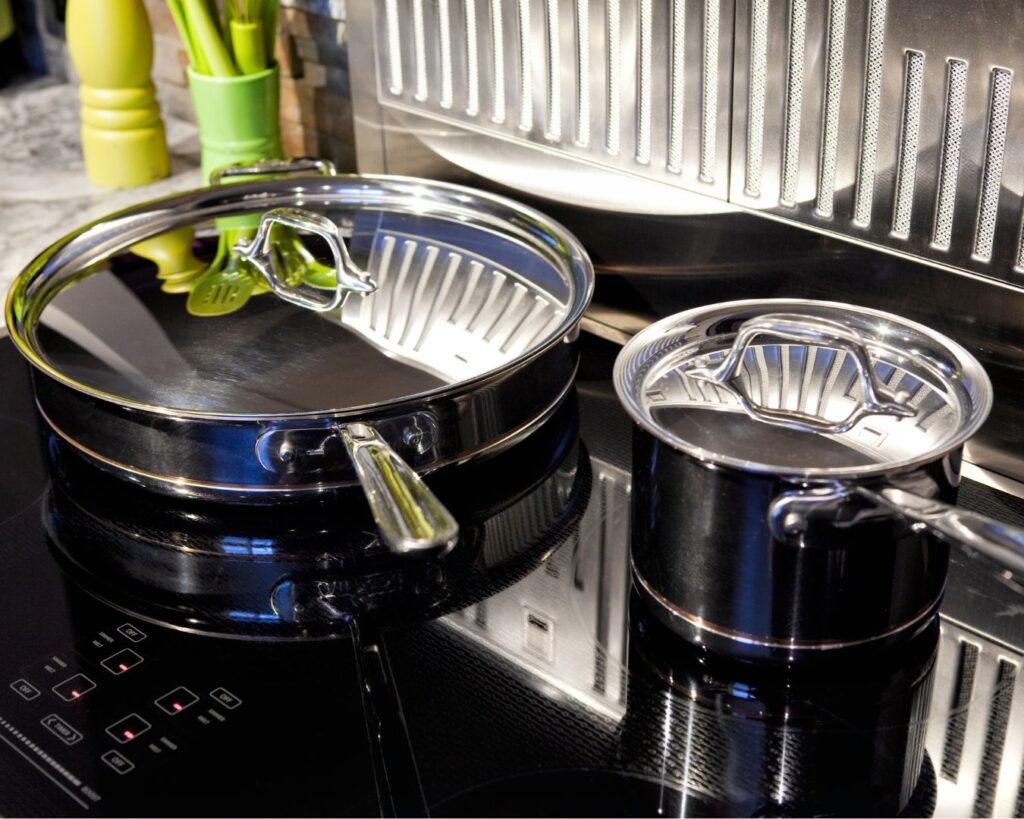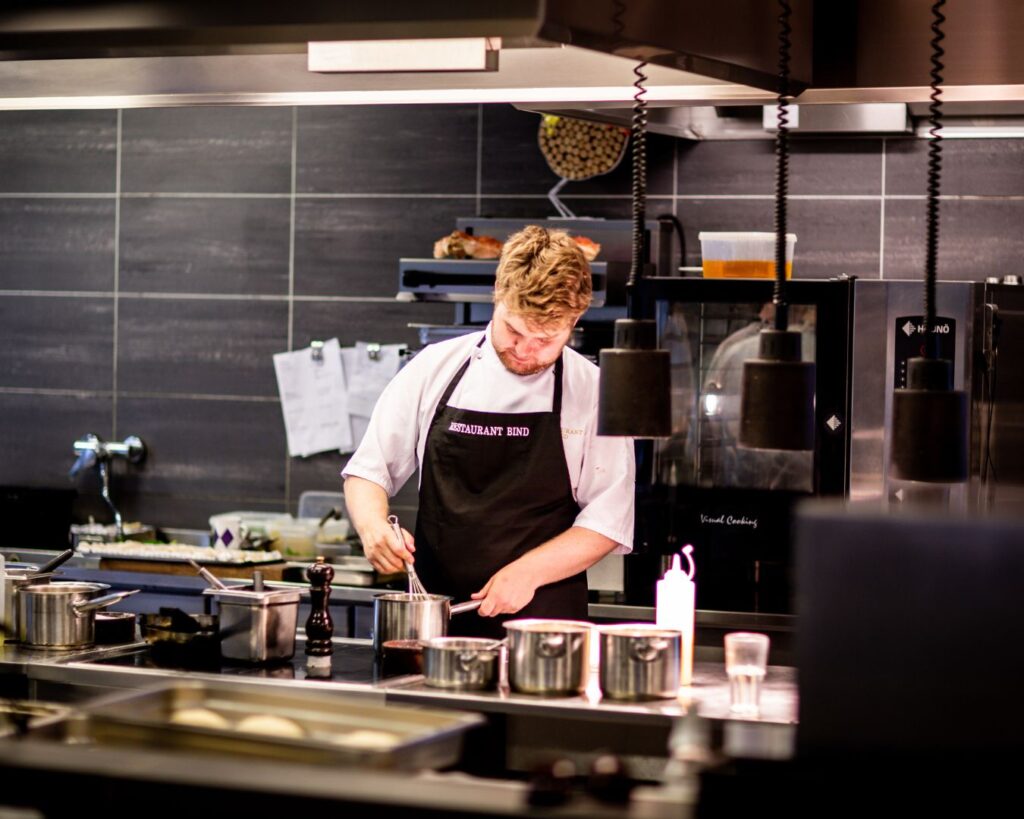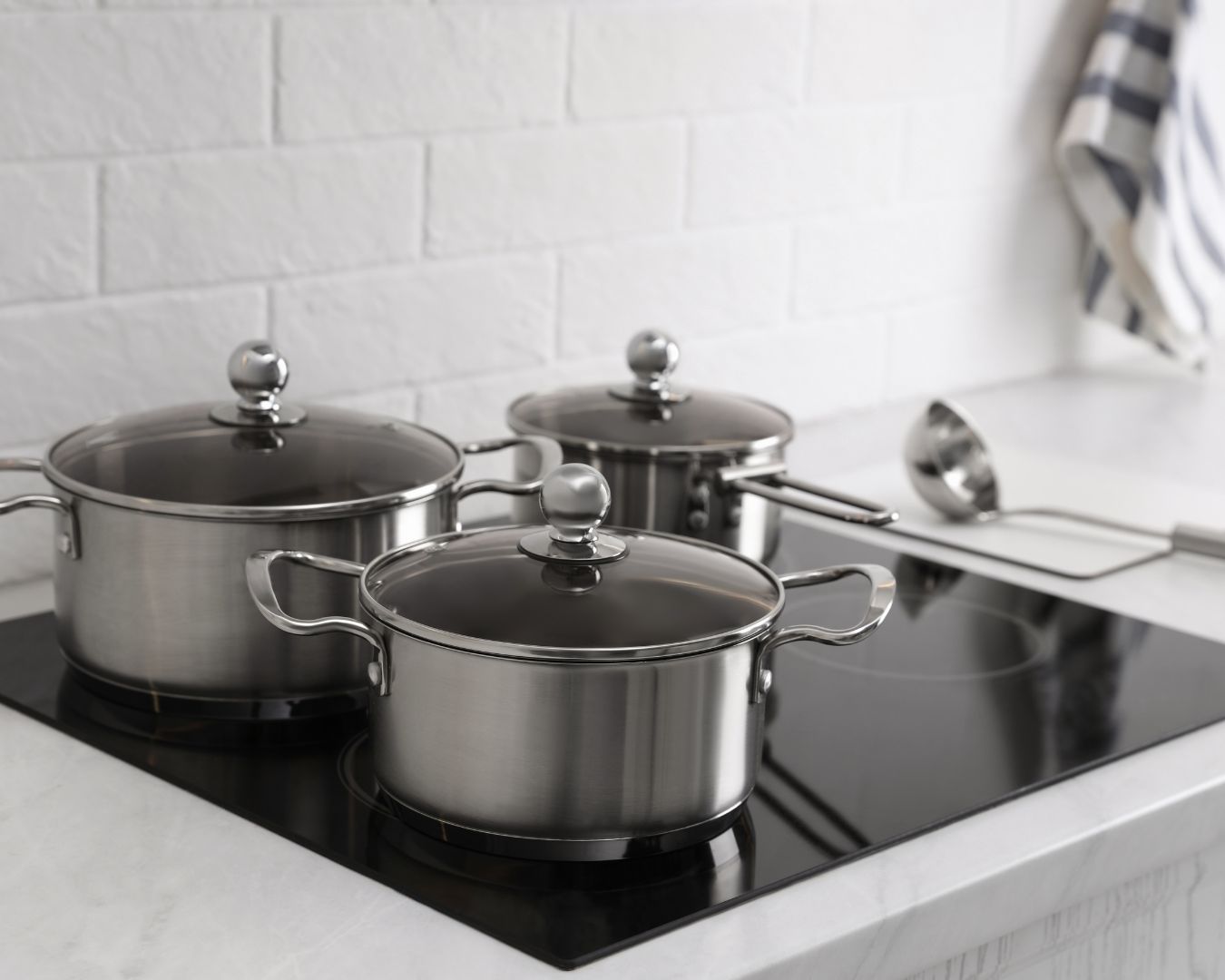Choosing the Right Cookware for Your Cooktop
Choosing the right cookware for your cooktop is essential for cooking efficiently, extending the life of your appliances, and achieving the best results with your meals. Whether you have an induction, gas, or electric cooktop, selecting the right pots and pans can make all the difference in your cooking experience. In this guide, we’ll explore how to match your cookware to your cooktop, ensuring compatibility and optimal performance.
Know Your Cooktop Type
Before selecting cookware, it’s important to understand the type of cooktop you have, as different cooktops work best with specific materials.
- Induction Cooktops: Induction cooking uses magnetic energy, so your cookware must have a magnetic base (such as stainless steel or cast iron). Cookware that isn’t magnetic won’t work on an induction stove.
- Gas Cooktops: Gas cooktops are versatile and can work with almost any type of cookware. However, the best options are materials that distribute heat evenly, such as stainless steel or copper.
- Electric Cooktops (Glass or Ceramic): For electric cooktops with a glass or ceramic surface, flat-bottomed cookware is crucial to ensure full contact with the heating element. Stainless steel and heavy-duty aluminum are good choices for these cooktops.

Choosing the Right Material
Each material has its own benefits, and understanding the differences can help you make an informed choice based on your cooking style and cooktop type.
- Stainless Steel: Durable, non-reactive, and great for both gas and electric cooktops, stainless steel is a popular all-around choice. It heats evenly and works well in combination with copper or aluminum cores for better heat conductivity.
- Cast Iron: Known for its excellent heat retention, cast iron is ideal for slow-cooking and searing. It can be used on gas, electric, and induction cooktops, but care should be taken with electric glass cooktops as it can scratch the surface.
- Non-Stick: Perfect for low-fat cooking and easy cleanup, non-stick cookware works well on gas and electric cooktops. However, it’s important to avoid using non-stick cookware at very high temperatures to prevent damage to the coating.
- Copper: Excellent for heat conductivity and precise temperature control, copper is often combined with stainless steel for durability. It is compatible with gas and electric cooktops but typically not induction unless it has a magnetic base.
- Aluminum: Lightweight and a good conductor of heat, aluminum is often anodized to increase its durability. It’s compatible with electric and gas cooktops, but not always ideal for induction unless reinforced with stainless steel.
Ensuring Size and Shape Compatibility
The size and shape of your cookware should match the size of the burner or heating element for optimal heat distribution.
- Flat Bottoms for Electric Cooktops: For electric cooktops, especially glass or ceramic surfaces, always choose cookware with flat bottoms. This ensures full contact with the heating element and even heat distribution.
- Fitting the Burner: Using cookware that matches the size of your burner helps to heat the pan more efficiently and evenly. A pan that’s too small won’t fully utilize the burner’s heat, while a pan that’s too large will leave part of the surface unheated.

Consider Weight and Ease of Handling
Heavy cookware like cast iron can be a fantastic choice for certain dishes but may be harder to maneuver, especially when full. If you do a lot of lifting or stirring, consider lighter options like aluminum or stainless steel.
Maintenance and Durability
Some cookware materials require more care than others. Here’s what to consider:
- Cast Iron: Needs to be seasoned regularly to maintain its non-stick properties and prevent rust.
- Stainless Steel: Durable and easy to maintain, but may require soaking or scrubbing to remove food residue.
- Non-Stick: Simple to clean but must be handled with care to avoid damaging the coating. Avoid using metal utensils.
- Copper: Requires regular polishing to maintain its shine and avoid tarnishing.
Induction Compatibility
If you’re using an induction cooktop, your cookware must be compatible. A simple test is to see if a magnet sticks to the bottom of the cookware. If it does, it’s induction-ready. Popular induction-friendly materials include cast iron, magnetic stainless steel, and some forms of clad aluminum.
Selecting the right cookware for your cooktop can elevate your cooking experience, prevent unnecessary damage to your appliances, and help you prepare delicious meals efficiently. Consider your cooktop type, the material of the cookware, and factors like maintenance and ease of use before making your choice. With the right cookware, your kitchen will be equipped for any culinary adventure!

